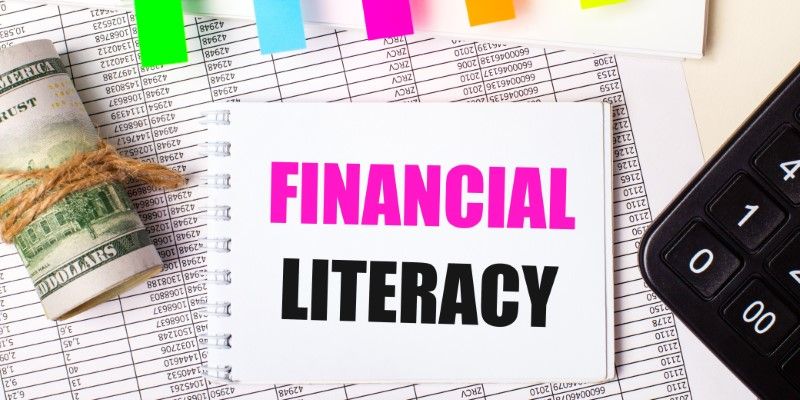In today's fast-paced world, financial literacy is more important than ever. It refers to the ability to understand and manage financial resources effectively. With rising living costs, fluctuating job markets, and an increasing reliance on credit, individuals must be equipped with the knowledge and skills to make informed financial decisions. Financial literacy is not just a buzzword but a vital component of financial security, allowing people to achieve their goals, avoid debt traps, and plan for a stable future. Let's delve into the fundamentals of financial literacy and its significance in fostering financial security.
Financial literacy equips individuals with the skills to manage money effectively, covering budgeting, investing, understanding credit, saving, and planning for retirement. It involves tracking income and expenses, making informed borrowing decisions, growing wealth through diversified investments, and preparing for long-term financial goals. Additionally, it helps individuals protect against fraud and scams. Financial literacy provides the knowledge and confidence to navigate personal finance and achieve financial security.

A solid grasp of financial concepts leads to better decision-making in various aspects of life. Here are several ways in which financial literacy impacts decision-making:
When individuals understand budgeting principles, they can allocate their resources more effectively. A well-planned budget helps manage daily expenses, set aside savings, and prepare for unexpected financial challenges. Those who are financially literate tend to avoid impulsive purchases and prioritize essential expenditures, leading to more excellent economic stability.
Individuals with financial literacy are more likely to invest rather than save. They understand the importance of growing their wealth through investments and are equipped to assess various opportunities. Knowledge about risk tolerance, market trends, and investment vehicles enables them to make informed choices that align with their financial goals.
Understanding how credit works helps individuals make responsible borrowing decisions. Financially literate people know how to use credit wisely, maintain a good credit score, and avoid high-interest debt. They can differentiate between good debt (like a mortgage) and bad debt (like high-interest credit cards), leading to healthier financial habits.

Financial security is the state of having a stable income or other resources to support a standard of living now and in the foreseeable future. Financial literacy is crucial in achieving this state by promoting wise financial habits and decisions.
Financially literate individuals are better equipped to manage risks. They understand the importance of insurance, such as health, auto, and life insurance, which helps protect against financial loss. By having appropriate coverage, individuals can safeguard their assets and maintain economic stability in times of crisis.

Financial literacy encourages long-term thinking. Individuals who plan for the future, including retirement and significant life events like buying a home or funding education, are more likely to achieve financial security. This forward-thinking approach helps build wealth and prepares individuals for potential challenges.
One of the most significant benefits of financial literacy is the ability to manage debt effectively. Understanding how to pay off loans, maintain a favourable credit score, and avoid high-interest debt ensures that individuals do not fall into financial distress. Individuals can focus on saving and investing for the future by keeping debt levels manageable.
Financially literate individuals tend to accumulate wealth over time. They know how to leverage their income, invest wisely, and make informed financial decisions. This wealth accumulation leads to greater economic security and personal and professional growth opportunities.

Improving financial literacy is a lifelong journey. Here are some practical steps individuals can take to enhance their financial knowledge and skills:
The first step towards financial literacy is education. Numerous resources are available, including books, online courses, podcasts, and workshops focused on personal finance. Consider enrolling in financial literacy programs offered by local organizations, schools, or community centres.
Establish clear financial goals to give your learning purpose. Whether saving for a vacation, paying off debt, or planning for retirement, having specific targets can guide your financial decisions and motivate you to stay informed.
Develop a budget that outlines your income and expenses. Use tools or apps to track your spending, and regularly review your budget to identify areas for improvement. Sticking to a budget helps build discipline and encourages mindful spending.
Review your financial situation regularly to assess your progress toward your goals. Check your credit score, review your investment portfolio, and analyze your savings. This proactive approach helps you stay on track and adjust your strategies.
If you find financial topics overwhelming, consider seeking advice from financial professionals. Financial advisors can provide personalized guidance tailored to your specific circumstances and goals. Professional advice can be invaluable if you need help with investments, retirement planning, or debt management.
Teaching others about financial literacy reinforces your understanding. Share what you learn with friends and family, or participate in community outreach programs focusing on financial education. This not only benefits others but also strengthens your knowledge and confidence.
Financial literacy is not a one-time achievement; it requires ongoing learning. Stay informed about changes in the financial landscape, such as new investment opportunities, tax regulations, or economic trends. Subscribing to financial news, following experts, or joining online forums can keep you updated.

Financial literacy is a critical component of financial security. It empowers individuals to make informed decisions, manage their finances effectively, and build a stable financial future. By understanding the basics, improving financial skills, and actively engaging in financial planning, individuals can pave the way for lasting financial security. In a world where financial challenges are common, being financially literate is beneficial and essential. Investing time and effort in enhancing financial literacy can lead to a brighter, more secure financial future for everyone.